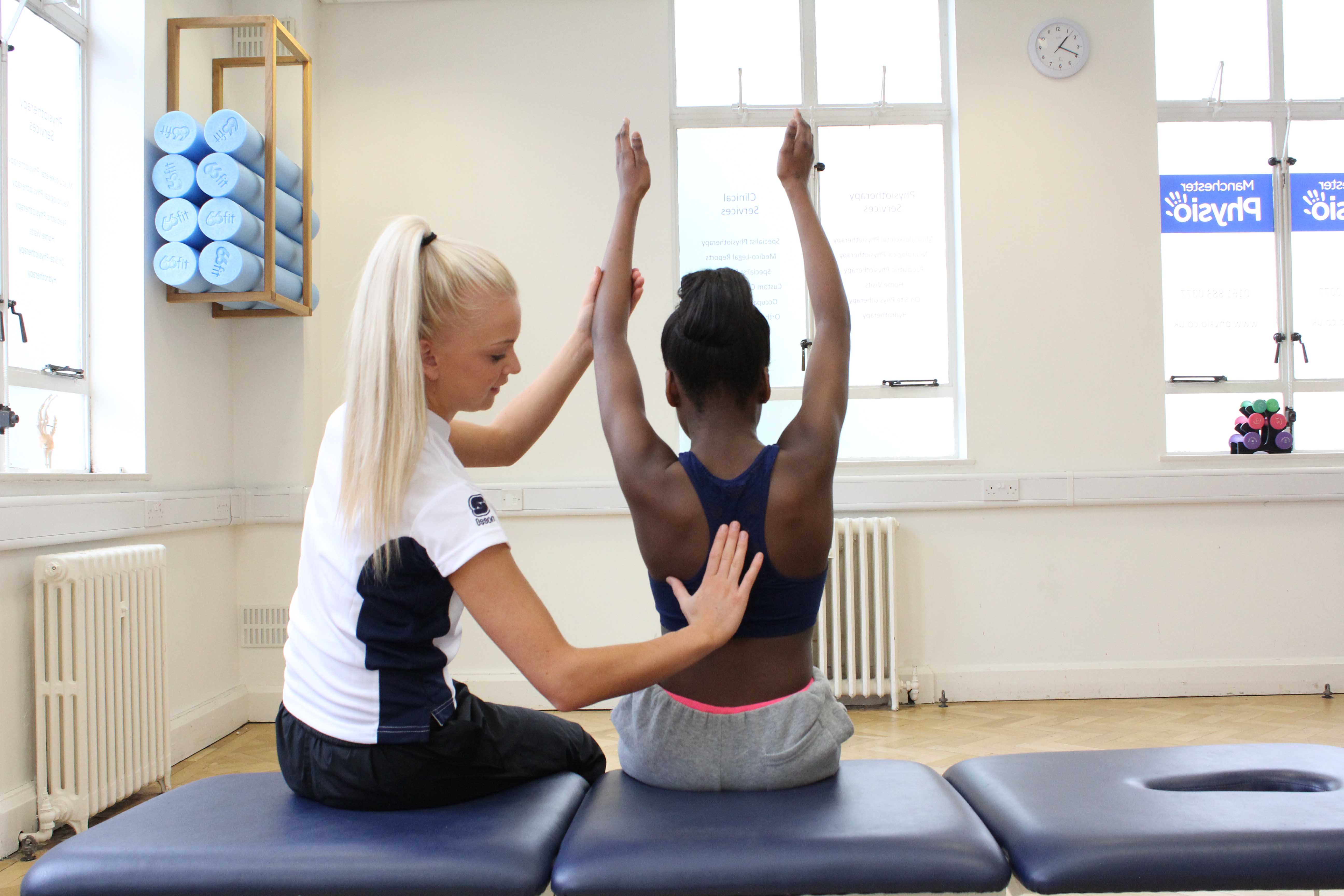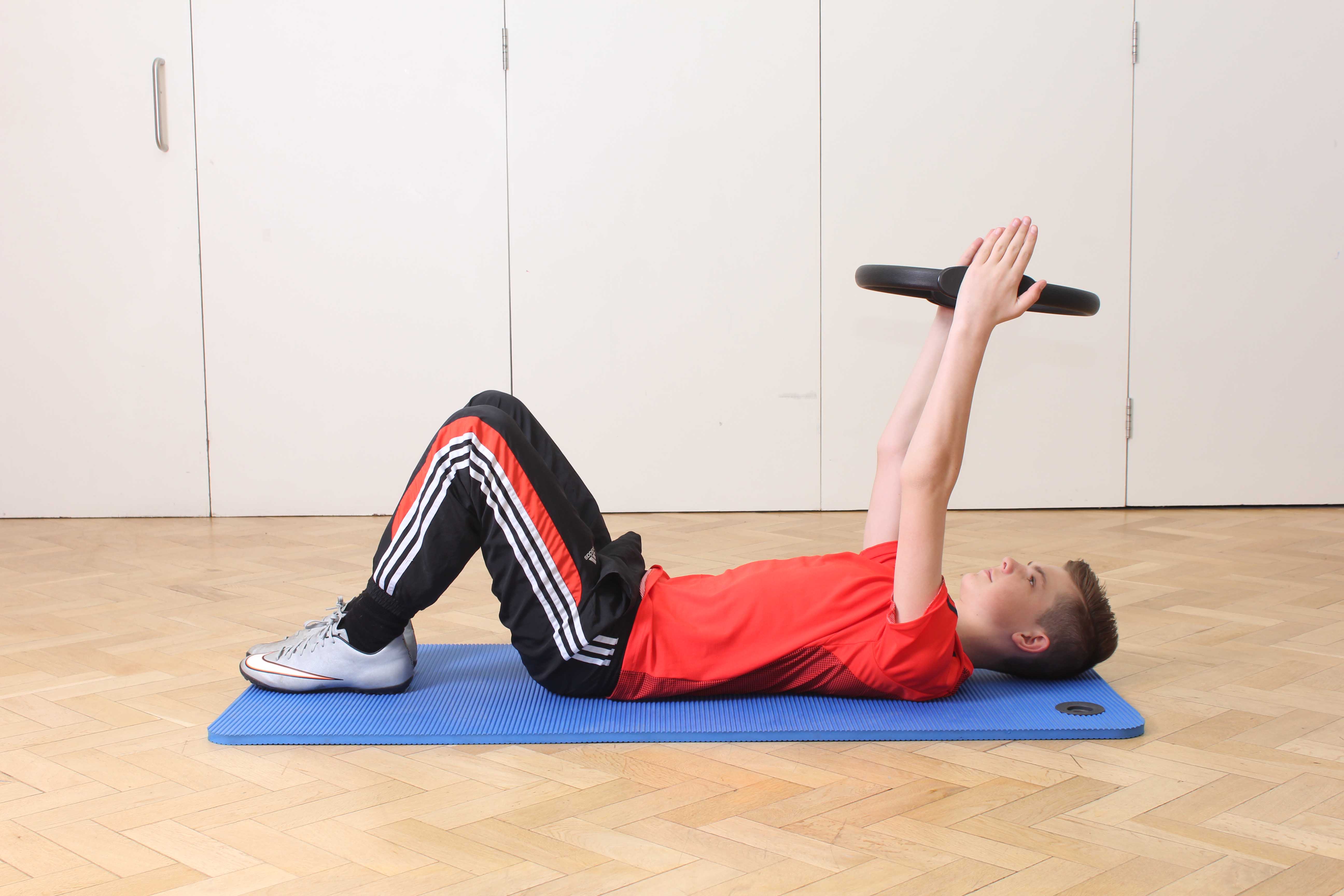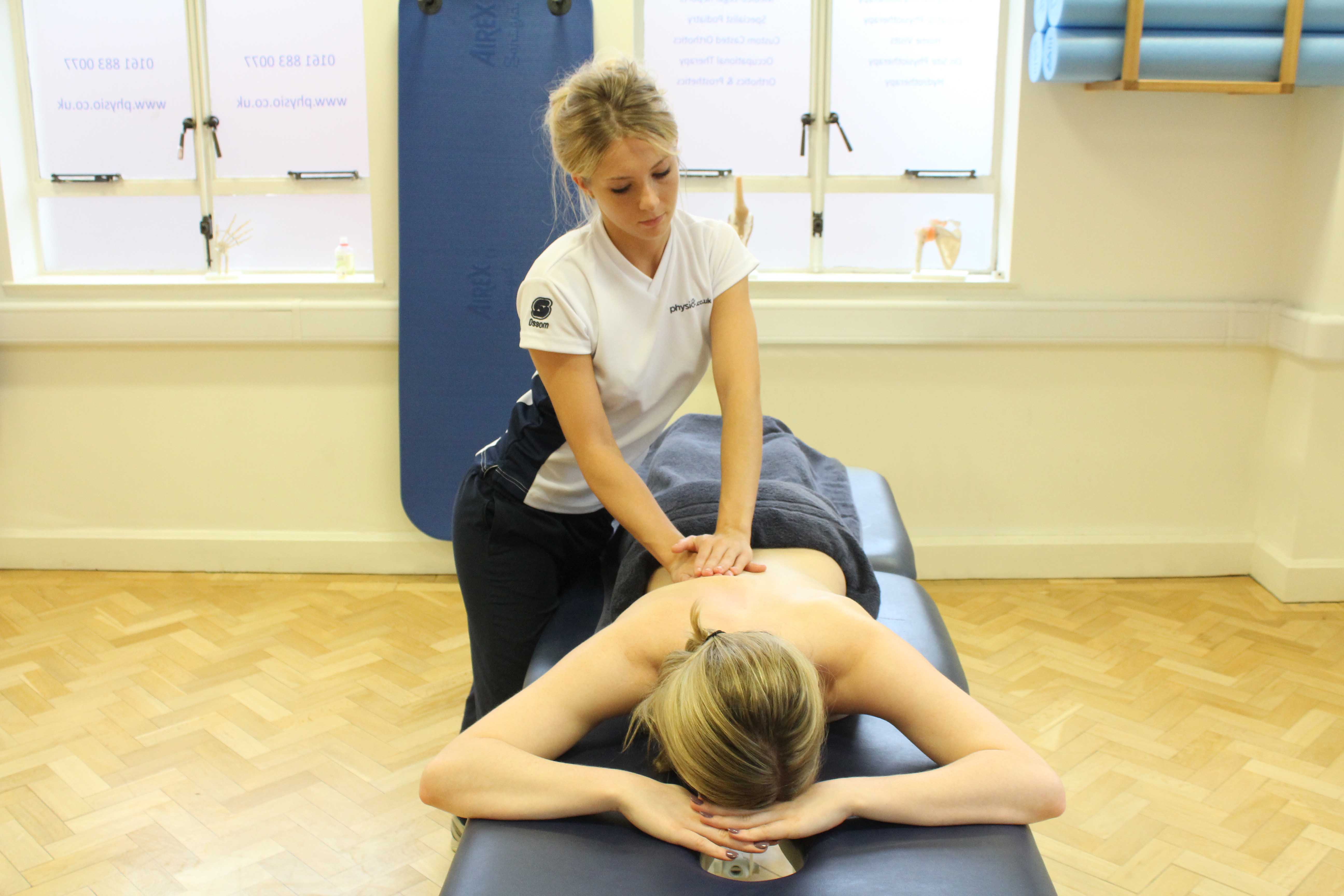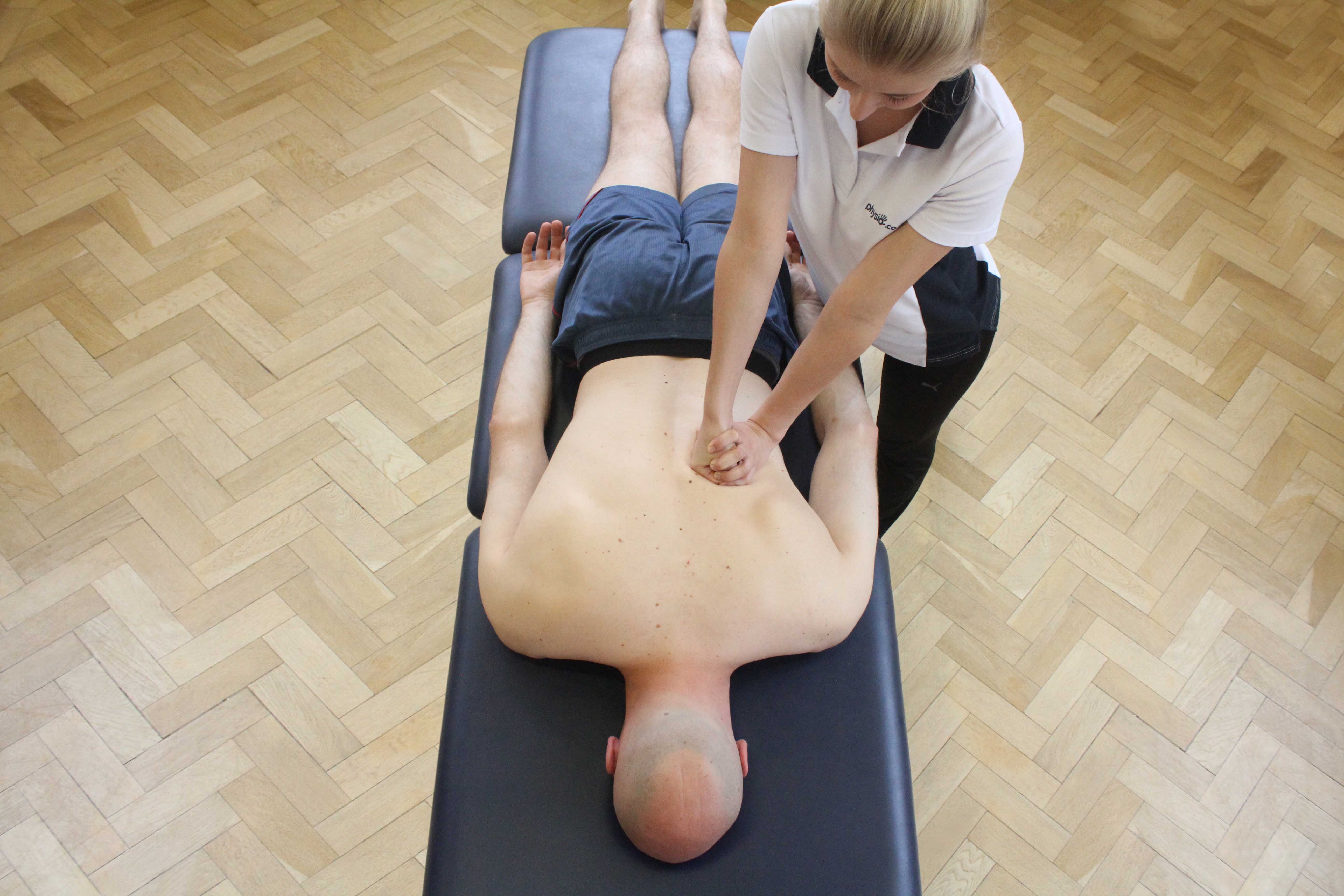What is scoliosis?
The spine is shaped in a slight S-shape to reduce the amount of force that it is exposed to and therefore minimise the likelihood of injury. However, scoliosis is when the spine curves excessively either to the right or left. This can occur at any area of the spine but it is more common at the thoracic (chest) or lower back (lumbar) regions. Physiotherapy can successfully treat scoliosis.
 Above: Trigger point massage of the lower back muscles by specialist MSK therapist
Above: Trigger point massage of the lower back muscles by specialist MSK therapistWhat can cause scoliosis?
For most people with scoliosis, the cause of their condition is unknown. It is thought that there is a genetic link to scoliosis and therefore it may run in families. If a child has certain neurological conditions such as cerebral palsy, muscular dystrophy or neurofibromatosis, this can lead to scoliosis as the spine has not developed sufficiently.
What are the symptoms of scoliosis?
The main symptoms of scoliosis are deformities in the area that has been affected. This may result in muscle weakness, tightness or instability and could be painful when doing certain activities or movements. You may notice that certain body parts are not in the normal position. For example there could be problems with alignment of the shoulder blades, hips and ribs. Most people with scoliosis do not experience any serious symptoms that prevent them maintain a normal and active lifestyle. Other symptoms include:
 Above: Kneading deep tissue massage of the back muscles by an experienced therapist
Above: Kneading deep tissue massage of the back muscles by an experienced therapistWhat should I do if I have scoliosis?
If you notice any of the symptoms described above and think you may have scoliosis, you should seek professional help as soon as possible. The quicker you receive an official diagnosis of scoliosis, the greater outcome you will have of your treatment. Treatment options for scoliosis include bracing, casting or surgery depending on how serious your condition is. As soon as a treatment has been decided, you should have a physiotherapy assessment to identify the things you are finding most difficult.
What shouldn’t I do if I have scoliosis?
Do not ignore symptoms of scoliosis even if you think that this diagnosis is unlikely. Try and avoid heavy lifting and bending or twisting movements as this will place extra strain on the spine.
 Above: Beating percussion soft tissue massage applied by an experienced therapist
Above: Beating percussion soft tissue massage applied by an experienced therapistPhysiotherapy for scoliosis.
Physiotherapy will include back mobility and strengthening exercises to provide extra support the spine. Hydrotherapy is a very effective way of relieving any pain or muscle spasm that you may be experiencing as a result of the scoliosis. Other physiotherapy techniques include:
Can scoliosis have any long-term effects?
If scoliosis is left untreated, the condition can become more serious and the deformities may progress. For example, the curve may extend to the upper chest (thoracic) area which is known as kyphosis. A thoracic kyphosis is closer to important organs such as the heart and lungs and therefore can cause respiratory and cardiac complications. Having scoliosis for a long period of time can result in back pain, permanent deformities and joint problems including osteoarthritis.
 Above: Soft tissue massage of the lower back muscles and connective tissue by specialist therapist
Above: Soft tissue massage of the lower back muscles and connective tissue by specialist therapistTo arrange a physiotherapy assessment with a spinal specialist call Physio.co.uk on 0330 088 7800 or book online.

 0330 088 7800
0330 088 7800

































